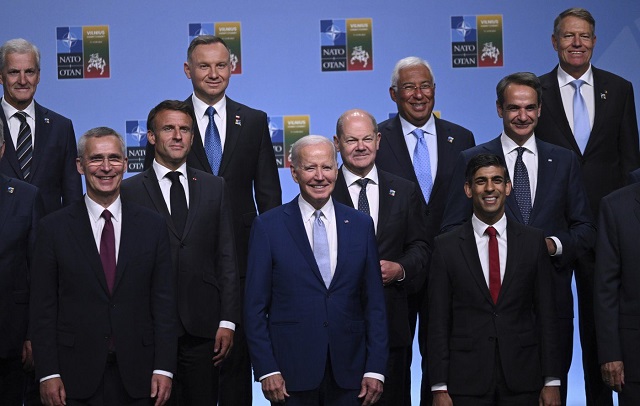The North Atlantic Treaty Organization (NATO) is preparing for a two-day summit in Vilnius, Lithuania, where 31 world leaders will convene to discuss Russia’s ongoing aggression and find common ground on critical matters. The summit aims to display a united front against Russia’s actions and strengthen support for war-torn Ukraine.
Reaffirming Support for Ukraine and Overcoming Differences on Sweden’s NATO Membership
One of the main agenda items at the NATO summit is the reaffirmation of support for Ukraine. NATO Secretary-General Jens Stoltenberg expressed the alliance’s commitment to providing increased assistance to Ukraine and moving it closer to NATO membership. However, the issue of offering Ukraine membership remains a point of contention among NATO members.
Lithuania Seeks Decisive Summit Amidst Ukraine’s Aspiration for NATO Membership
Lithuanian President Gitanas Nausėda hopes that the Vilnius summit will be remembered as the summit of decisions rather than mere declarations. Ukraine’s quest for NATO membership is a significant topic of discussion, and the outcome of the summit could have profound implications for Ukraine’s security and its relationship with Russia.
Divisions among NATO Members on Ukraine’s Membership Prospects
Despite a broad consensus to demonstrate strong support for Ukraine, NATO members remain divided on the issue of granting Ukraine membership. While nations like Lithuania and Poland advocate for swift action in granting membership, countries such as the United States and Germany adopt a more restrictive stance. Concerns have been raised that Ukraine’s ongoing conflict with Russia could potentially draw the entire alliance into the conflict.
As the NATO summit kicks off in Vilnius, the world will closely watch the decisions made regarding Ukraine’s membership prospects, the efforts to overcome differences on Sweden’s NATO membership, and the united stance against Russia’s aggression. The outcomes of this summit have the potential to shape the future geopolitical landscape of the region and define NATO’s response to security challenges.















